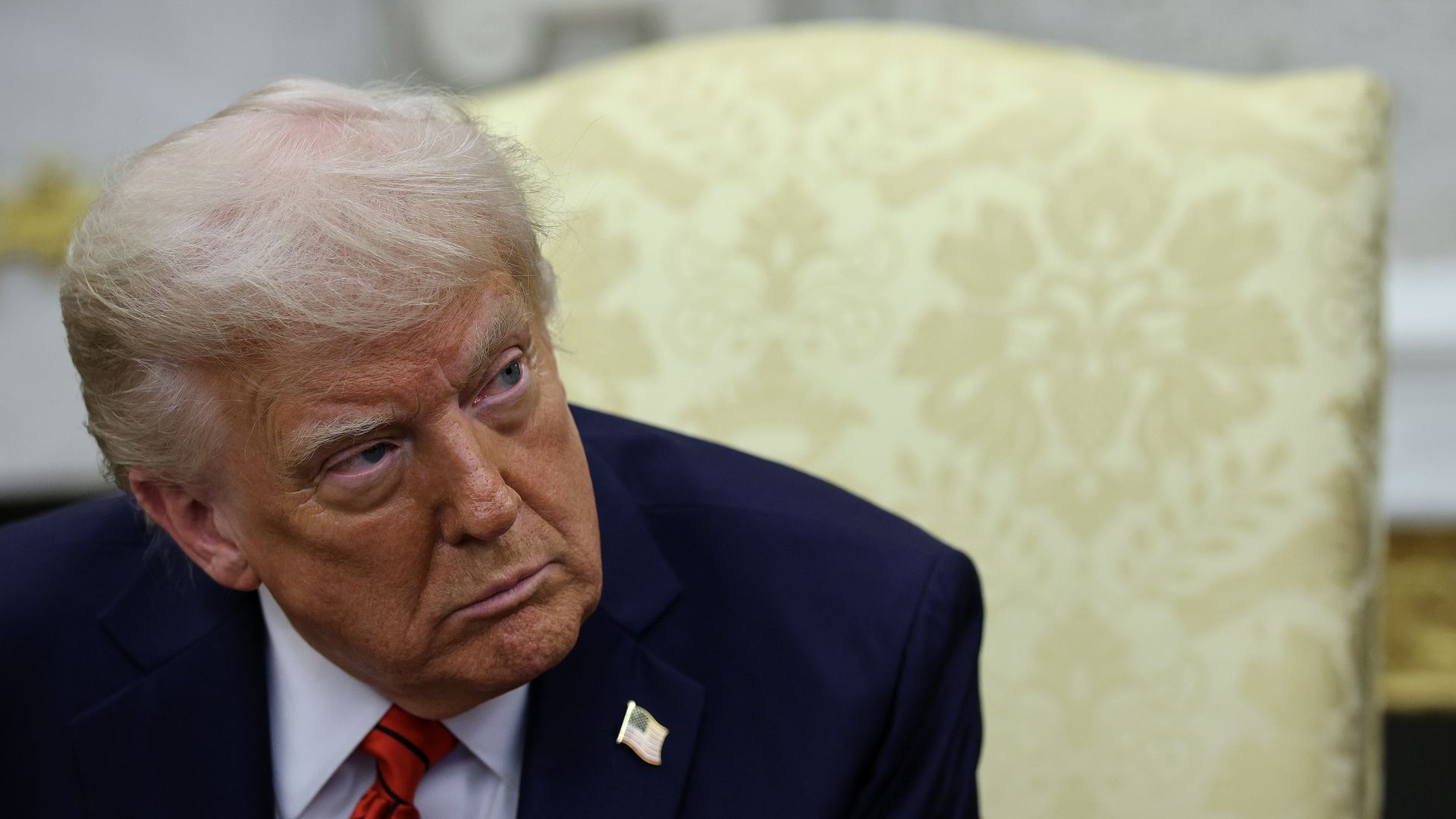
President Trump in the Oval Office. Photo: Win McNamee/Getty Images
The Trump administration conceded this weekend what economists, CEOs and consumers already knew: Americans pay for tariffs.
Why it matters: Nearly a decade of Trump trade arguments held that foreign countries, not Americans, paid the ultimate cost of a trade war.
- But the president and his economic team now acknowledge that tariffs are raising prices for everyone, from industrial ports to retail storefronts.
The big picture: Trump's sweeping global tariffs, effectively the highest in nearly a century, are expected to cost the average household more than $2,300 a year, according to the Yale Budget Lab.
- Even companies that once promised to hold the line on those costs, like Walmart, now say they have no choice but to pass them along.
- Inflation may be benign for now, but experts are increasingly convinced that higher prices are only a matter of time.
Catch up quick: After Walmart said this week it would raise prices, a furious Trump insisted on Truth Social that the company "eat the tariffs" — a concession, of sorts, that someone this side of the border had to pay something, somehow.
- Treasury Secretary Scott Bessent then went on the Sunday TV shows and said that while Walmart would eat some of the tariffs, consumers would have to pay, too.
The intrigue: It was only May 11 that Commerce Secretary Howard Lutnick insisted people had to drop the "silly arguments" that consumers would pay the costs of trade levies.
- Four days later, the country's largest retailer said that's exactly what they'd have to do.
For the record: "The Administration has consistently maintained that the United States, the world's best and biggest market economy, has the leverage to make our trading partners ultimately bear the cost of tariffs," White House spokesperson Kush Desai said in a statement.
- "The data backs us up: we've now had three months of below-expectation inflation reports after enacting tariffs, especially on China. Low inflation, robust jobs reports, and trillions in historic investment commitments prove that President Trump's agenda of tariffs, rapid deregulation, tax cuts, and domestic energy production is laying the groundwork to restore American Greatness."
Between the lines: Bessent said Sunday that while consumer prices may rise due to tariffs, people will see even bigger benefits from the falling price of gasoline.
- He argued it was effectively a tax cut for consumers, and would help keep inflation in line.
Reality check: With the average American vehicle using a little under 500 gallons of gas a year, and gas prices per gallon being a little over 40 cents cheaper today than a year ago, the average driver is looking at an annual savings of around $200 per car.
- That's a fraction of what Yale and other budget experts estimate tariffs will cost households.
What to watch: Multiple tariff clocks are ticking — a pause on sweeping reciprocal tariffs ends in early July, and a mutual lowering of duties with China ends in early August, unless deals can be struck between now and then.
- But even if deals are struck later this year, it may be too late to avoid at least some short-term price pain.
- "If Walmart is raising prices, it certainly means that other retailers are going to be raising prices as well," Gabelli Funds analyst Justin McAuliffe wrote last week.